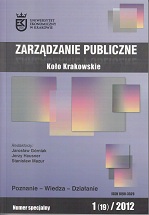Linguistics vs. the contemporary research paradigms
Keywords:
scientific paradigm, linguistics, social knowledge, inductivism, verificationism, falsificationism, cognitivismAbstract
The paper offers a predominantly historical review of paradigms in language research, and attempts to anchor them in modular thinking about social knowledge formation, especially formation of the language of social communication. The reflexion on language, constitutive of linguistic research since the beginning of its existence, has not only impacted language structures and designates but also provided them with some normative functions. The significance of linguistics is all the more apparent if we realize that all knowledge is created, communicated and preserved in a language whose different linguistic aspects we can analyze. The author describes scientific paradigms based on the theory of scientific revolutions developed by Thomas Kuhn. In the course of history of linguistics, there were four such paradigms: traditional (inductivism), structural (verificationism), one derived from generative grammar (falsificationism), and a cognitive one. The development of language research enables us to perceive its strong tendency to encroach on other domains, especially those of social sciences. Nowadays, there are elements of many paradigms in linguistics. Such complexity makes it difficult to define a single paradigm which, according to the Kuhn, is able to determine its functions and tasks. However, it does not undermine the significance of language as a fundamental factor in social knowledge creation, which is a tool of its communication and preservation. Indeed, it makes language research all the more important.



